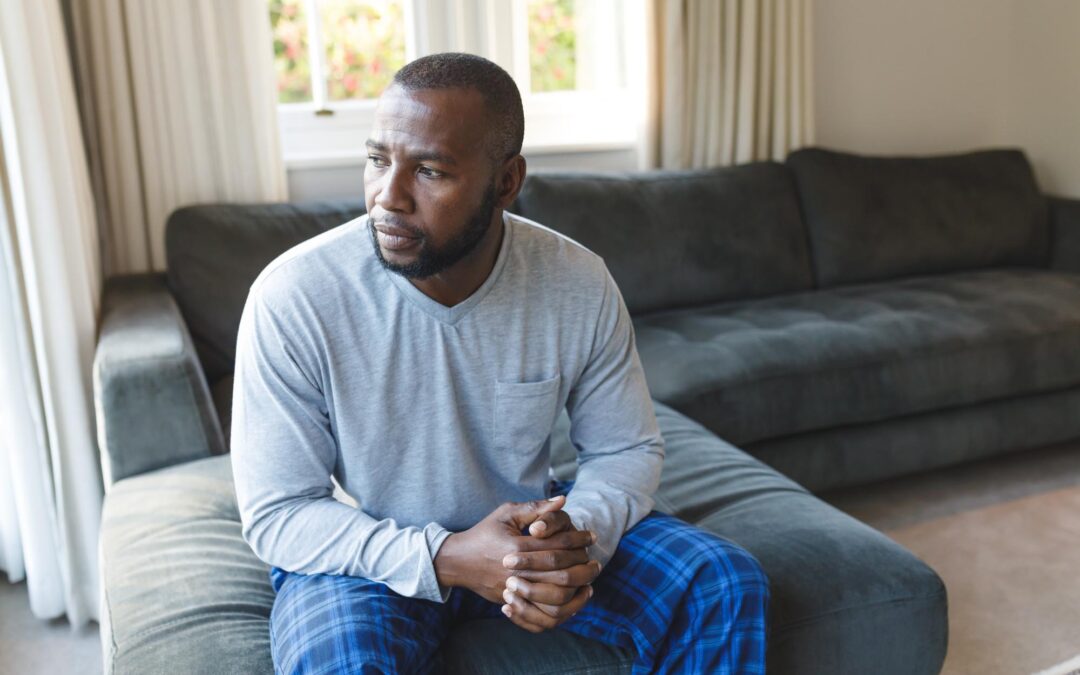How to Help a Loved One Who Refuses Detox: A Guide for Families
Understanding Addiction and Detox Refusal
When someone you care about struggles with substance use disorder, their refusal to enter detox can feel confusing and heartbreaking. This resistance comes from complex psychological and physical factors that deserve understanding rather than judgment.
1. The Role of Denial in Addiction
Addiction denial operates as a powerful defense mechanism. Many individuals genuinely cannot see—or refuse to acknowledge—the extent of their substance use. The brain’s reward pathways have been fundamentally altered, making it difficult to perceive reality clearly. Fear compounds this denial: fear of withdrawal symptoms, fear of facing life without substances, and fear of the unknown detox process itself.
2. The Impact of Withdrawal on Detox Refusal
The physical reality of withdrawal creates another significant barrier. Individuals anticipate severe discomfort—nausea, tremors, anxiety, insomnia—and these fears aren’t unfounded. Without medical supervision, withdrawal can indeed be dangerous and intensely uncomfortable. For instance, the opiate withdrawal timeline reveals that symptoms can begin as early as 8 to 30 hours after the last dose and last for up to 10 days. This explains why many people choose to continue using rather than face these symptoms.
3. The Influence of Co-occurring Mental Health Conditions
Co-occurring mental health conditions add layers of complexity to detox refusal reasons. Depression, anxiety, trauma, or bipolar disorder often coexist with addiction, and substances may have become the primary coping mechanism. The thought of losing this “solution” while facing underlying mental health challenges can feel overwhelming.
4. The Importance of Medically Supervised Detoxification
Medically supervised detoxification addresses both the physical withdrawal process and emotional needs through 24/7 monitoring, medication-assisted treatment when appropriate, and therapeutic support—creating a safe pathway that individuals may not realize exists. Such programs are essential because they not only help manage withdrawal symptoms—whether from alcohol which has its own set of challenges—but also mitigate risks associated with substance use like the deadly connection between heroin use and infectious diseases.
If you or someone you know is in need of such a program, it’s important to reach out for help. You can contact CNV Detox for professional assistance in drug and alcohol detoxification in California.
Educating Yourself About Addiction and Detox
Knowledge transforms fear into understanding and helplessness into action. When you grasp the biological reality of addiction, which fundamentally alters brain chemistry and decision-making capacity, you can separate the person from their behavior. This distinction becomes essential when maintaining compassion during difficult moments.
Understanding Withdrawal Symptoms
Understanding withdrawal symptoms provides crucial context for why your loved one might resist detox. Physical dependence creates a genuine medical concern: abrupt cessation of alcohol or benzodiazepines can trigger life-threatening seizures, while opioid withdrawal, though rarely fatal, causes intense physical discomfort that many describe as unbearable. Recognizing these realities helps you appreciate why professional medical supervision isn’t optional—it’s essential for safety and comfort. This is where medically supervised detox becomes vital.

Familiarizing Yourself with Treatment Options
Familiarizing yourself with treatment options reveals that detox exists on a spectrum:
- Medically supervised detox provides 24/7 monitoring, medication-assisted treatment, and immediate response to complications
- Residential rehabilitation offers structured programming after physical stabilization
- Dual diagnosis programs simultaneously address substance use and mental health conditions like depression or anxiety
This addiction education equips you to have informed conversations rather than relying on misconceptions or stigma. You’ll understand that your loved one isn’t choosing substances over family—they’re experiencing a medical condition that requires clinical intervention. This perspective shift allows you to respond with both firmness and empathy, advocating for treatment while avoiding shame-based approaches that typically backfire.
Understanding the Impact of Peer Pressure on Addiction
Moreover, understanding the impact of peer pressure on addiction can help you support your loved one in resisting such influences. There are expert tips available on how to stand up to peer pressure while protecting one’s sobriety.
Additionally, it’s important to recognize that addiction is not merely a choice or a lack of willpower; it’s a complex disorder characterized by compulsive drug seeking, continued use despite harmful consequences, and long-lasting changes in the brain. For example, alcohol disorders are just one facet of this larger issue. Similarly, gaining insight into understanding drug use and addiction can further enhance your comprehension of this challenging situation, enabling you to provide better support for your loved one.
Approaching Your Loved One with Compassionate Communication
The way you speak with someone struggling with addiction can either build trust or create distance. Compassionate communication starts with recognizing that your loved one is already experiencing internal conflict, shame, and fear—adding external judgment will only deepen their resistance to help.
Creating a foundation of non-judgmental support means:
- Choosing language that focuses on concern rather than criticism (“I’ve noticed you seem to be struggling” instead of “You’re destroying your life”)
- Listening more than you speak, allowing them to express their feelings without interruption
- Acknowledging their pain and the difficulty of their situation rather than minimizing it
- Expressing your care from a place of love, not frustration or disappointment
Avoiding confrontation doesn’t mean avoiding difficult conversations—it means approaching them thoughtfully. Guilt trips (“Look what you’re doing to this family”) and ultimatums (“Get help or I’m done with you”) typically trigger defensive responses and push individuals deeper into isolation. These tactics may provide temporary relief for your frustration but rarely motivate lasting change.
Maintaining open lines of communication requires patience and consistency. Let your loved one know you’re available whenever they’re ready to talk. Respect their emotional state, even when it’s difficult to understand. Creating a safe space where they feel heard rather than lectured increases the likelihood they’ll eventually reach out when they’re ready to consider treatment.
This approach is also applicable when dealing with other mental health issues such as depression. It’s essential to recognize that each individual’s struggle is unique, requiring tailored responses that foster understanding and support. For instance, if your loved one is battling depression, it’s crucial to educate yourself about the condition. Understanding the complex nature of addiction can also enhance your ability to provide meaningful support.
Setting Healthy Boundaries and Avoiding Enabling Behaviors
Boundary setting in addiction recovery requires distinguishing between support and protection of harmful behaviors. Clear boundaries establish what you will and will not accept, creating a framework that honors both your loved one’s dignity and your own well-being.
Defining clear boundaries
Defining clear boundaries means identifying specific behaviors you cannot tolerate and the consequences that follow. This might include:
- Refusing to provide money without accountability
- Not allowing substance use in your home
- Declining to participate in activities where substances will be present
These limits aren’t punishments—they’re protective measures that create space for healthier interactions.
Avoiding enabling behaviors
Avoiding enabling behaviors demands honest self-reflection about actions that inadvertently support continued substance use:
- Providing money without knowing how it will be spent
- Calling in sick to their employer on their behalf
- Paying bills or rent to prevent natural consequences
- Making excuses to family members about their behavior
- Bailing them out of legal troubles repeatedly
Family accountability
Family accountability protects everyone involved. When you maintain boundaries, you allow your loved one to experience the authentic consequences of their choices—often a crucial catalyst for recognizing the need for help. Boundaries also preserve your emotional and financial resources, preventing the entire family system from destabilizing.
At CNV Detox, we recognize that families who practice healthy boundary-setting often create the conditions where their loved ones become more receptive to professional treatment.
When and How to Seek Professional Evaluation and Intervention
A comprehensive medical evaluation addiction assessment provides critical insight into your loved one’s physical health, substance use patterns, and treatment requirements. Medical professionals can identify withdrawal risks, co-occurring mental health conditions, and the appropriate level of care needed—information that proves invaluable when planning next steps. At facilities like CNV Detox, these evaluations examine everything from vital signs and organ function to psychological state, creating a complete picture of what treatment should address.
Professional intervention counselors bring specialized training in breaking through the resistance that families often encounter alone. These experts understand the psychology of addiction and employ proven intervention strategies designed to help individuals recognize the need for treatment without triggering defensiveness. They guide families through structured conversations, prepare participants for various responses, and maintain focus on the goal: getting your loved one to accept help.
Interventions serve as a powerful tool when other approaches haven’t created change. The process involves:
- Gathering close family members and friends who care about the individual
- Preparing specific examples of how addiction has caused harm
- Presenting a unified message of concern paired with a clear treatment plan
- Offering immediate admission to a detox program like CNV Detox
Professional guidance ensures the intervention remains supportive rather than accusatory, maximizing the chance your loved one will accept the help being offered.
Supporting Yourself During This Process
Watching someone you love refuse help creates a unique kind of heartbreak. The constant worry, sleepless nights, and emotional exhaustion can leave you feeling depleted and overwhelmed. Family support addiction requires acknowledging that you cannot pour from an empty cup—your well-being directly impacts your ability to remain a steady presence in your loved one’s life.
The emotional toll manifests in various ways: anxiety about their safety, guilt over past interactions, frustration with their continued refusal, and grief for the person they once were. These feelings are valid and deserve attention. Ignoring your own needs doesn’t help anyone; it often leads to burnout, resentment, and compromised physical health.
Counseling for families provides a confidential space to process these complex emotions with a professional who understands addiction’s impact on entire family systems. Individual therapy helps you develop coping strategies, work through guilt or anger, and maintain perspective during this marathon journey.
Narc-Anon support groups and Al-Anon meetings connect you with others navigating similar challenges. These communities offer:
- Shared experiences that reduce isolation
- Practical strategies from those who’ve walked this path
- Emotional validation without judgment
- Hope through witnessing others’ recovery journeys
Self-care isn’t selfish—it’s essential. Prioritize adequate sleep, maintain social connections outside the addiction crisis, engage in activities that bring you joy, and protect time for rest. Your resilience depends on these foundations remaining intact.
Understanding Readiness for Treatment and Patience in Recovery Journey
Readiness for treatment cannot be forced or manufactured—it must come from within the person struggling with addiction. While your love and concern are powerful motivators, the decision to seek help ultimately belongs to your loved one. True commitment to recovery requires internal motivation, self-awareness, and a genuine desire for change.
Research consistently shows that involuntary treatment risks often outweigh potential benefits. When someone enters detox or rehab under coercion, they’re significantly more likely to:
- Resist therapeutic interventions and refuse to engage meaningfully
- Leave treatment prematurely against medical advice
- Return to substance use immediately after discharge
- Feel more resentment toward family members who forced treatment
This doesn’t mean your efforts are wasted. Patient support addiction recovery looks like maintaining consistent, compassionate communication without applying pressure. Continue expressing your concerns calmly, sharing how their addiction affects you using “I” statements, and reminding them that help is available whenever they’re ready.
The timeline for readiness varies dramatically between individuals. Some people reach their turning point quickly, while others need months or years to arrive at that crucial moment of clarity. Your role isn’t to speed up this process artificially but to ensure that when readiness does emerge, your loved one knows exactly where to turn for professional, compassionate care.





